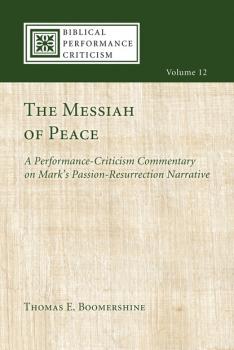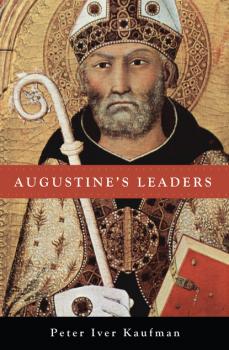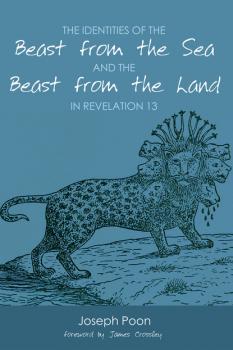Религия: прочее
Различные книги в жанре Религия: прочееNourishment for the Spiritual Pilgrimage
"In the morning, while it was still very dark, he got up and went out to a deserted place, and there he prayed" (Mark 1:35). Jesus taught by his words and actions. He went by himself to pray when he was tired, when faced with upcoming trying events, or when he just wanted to be alone in the presence of his Lord. He gave us guidance about what to pray, how to pray, and why to pray, and was very familiar with the Hebrew Scriptures. Thus, if we want to become Jesus' disciple we should follow his model and invest time and emotional energy into prayer, Bible study, and reflection. Nourishment For The Spiritual Pilgrimage provides an aid for those who want to participate in the spiritual pilgrimage of becoming a lifelong disciple of Jesus Christ. It offers insight and support for those who daily want to turn their hearts, souls, and minds to God's will in their lives, as they strive to help in bringing about God's kingdom in this present time. There are countless other devotionals, but hopefully this can offer something that many of the others may not, a specific focus on the concept of discipleship.
The Wonder of the Cross
When considering and confronting the problem of evil, we may be asking the wrong question: Why is there evil in the world if God is good and powerful? It may be wrong because it smuggles in an unbiblical premise: God can and should use his coercive power to relieve suffering since he is both good and able. But what if coercive power does not work to accomplish God's goals? This book is an investigation into the possibility that the noncoercive power of the Cross must be at the center of this issue, and that the Cross could reform this question. We could ask, instead, How is God destroying evil and suffering–and why is he taking so long? The answer to this reframed question might be: He is using evil and suffering to destroy evil and suffering for His People; this is how long it takes. While not a «solution» to the problem of evil, could this help us learn to delight in God in a world in which evil and suffering seem at times so relentless?
Saving the World and Healing the Soul
Saving the World and Healing the Soul treats the heroic and redemptive trials of Jason Bourne, Bruce Wayne, Bella Swan, and Katniss Everdeen. The Bourne films, Christopher Nolan's Batman trilogy, the Twilight saga, and the Hunger Games series offer us stories to live into, to make connection between our personal loves and trials and a good order of the world.
Thinking in Public
Thinking in Public provides a probing and provocative meditation on the intellectual life and legacy of Jacques Roumain. As a work of intellectual history, the book investigates the intersections of religious ideas, secular humanism, and development within the framework of Roumain's public intellectualism and cultural criticism embodied in his prolific writings.
The book provides a reconceptualization of Roumain's intellectual itineraries against the backdrop of two public spheres: a national public sphere (Haiti) and a transnational public sphere (the global world). Second, it remaps and reframes Roumain's intellectual circuits and his critical engagements within a wide range of intellectual traditions, cultural and political movements, and philosophical and religious systems. Third, the book argues that Roumain's perspective on religion, social development, and his critiques of religion in general and of institutionalized Christianity in particular were substantially influenced by a Marxist philosophy of history and secular humanist approach to faith and human progress.
Finally, the book advances the idea that Roumain's concept of development is linked to the theories of democratic socialism, relational anthropology, distributive justice, and communitarianism. Ultimately, this work demonstrates that Roumain believed that only through effective human solidarity and collaboration can serious social transformation and real human emancipation take place.
The Messiah of Peace
The telling of Mark's story of Jesus as the Messiah of peace in the decades following the Roman-Judean war announced a third way forward for Diaspora Judeans other than warfare against or separation from «the nations.» Mark's Gospel was the story of the victory of a nonviolent Messiah who taught and practiced the ways of a new age of peace and reconciliation in contrast to the ancient and modern myth of redemptive violence.
The Messiah of Peace is a performance-criticism commentary exploring a new paradigm of biblical scholarship that takes seriously the original experience of the Gospel of Mark as a lively story told to audiences rather than as a text read by readers.
The commentary is correlated with the Messiah of Peace website, which features video recordings of the story in both English and Greek. Critical investigation of the sounds of the Markan passion-resurrection narrative reveals the identity of its original audiences as predominantly Judean with a minority of Gentile nonbelievers. Hearing the passion-resurrection story was an experience of involvement in the forces that led to the rejection and death of Jesus–an experience that brought on the challenges inherent in becoming a disciple of the Messiah of peace.
Augustine’s Leaders
In Augustine's Leaders, Peter Iver Kaufman works from the premise that appropriations of Augustine endorsing contemporary liberal efforts to mix piety and politics are mistaken–that Augustine was skeptical about the prospects for involving Christianity in meaningful political change. His skepticism raises several questions for historians. What roles did one of the most influential Christian theologians set for religious and political leaders? What expectations did he have for emperors, statesmen, bishops, and pastors? What obstacles did he presume they would face? And what pastoral, polemical, and political challenges shaped Augustine's expectations–and frustrations? Augustine's Leaders answers those questions and underscores the leadership its subject provided as he continued to commend humility and compassion in religious and political cultures that seemed to him to reward, above all, celebrity and self-interest.
Weaving the American Catholic Tapestry
Concerned that American Catholic theology has struggled to find its own voice for much of its history, William Portier has spent virtually his entire scholarly career recovering a usable past for Catholics on the U.S. landscape. This work of ressourcement has stood at the intersection of several disciplines and has unlocked the beauty of American Catholic life and thought. These essays, which are offered in honor of Portier's life and work, emerge from his vision for American Catholicism, where Scripture, tradition, reason, and experience are distinct, but interwoven and inextricably linked with one another. As this volume details, such a path is not merely about scholarly endeavors but involves the pursuit of holiness in the «real» world.
The Becoming of God
How should we believe in God today? If we look beyond our little lives to the vast cosmos, we may even ask: Why all that? And even if we spiritually feel the universe: Why believe any religion? After all, there are many; and haven't they contributed to the predicament of humanity? Process theology gives provocative answers to these questions: how we are bound by the organic cycles of this world, but how in this web of life God shines even in the last, least, and forgotten event as the Eros of its becoming and as its mirror of greatness; why anything exists: because it is from beauty, for harmony and intensity, and through a consciousness of peace rising from our deepest intuitions of existence. We can change: not only in our thoughts and lives, but even in the way we experience this world. This book introduces such a new way of experiencing, thinking, and living. Based on the fascinating work on cosmology, religion, and civilization of Alfred North Whitehead, this book develops the main theses of process theology and elucidates it as a theopoetics of mutual care for the unexpected, the excluded, the forgotten, and a future society of peace.
Ordinary Saints
How does God manifest himself in the world? Through the righteous lives of his holy people (the saints). As a religion of witnesses, Christianity is dependent upon its saints (defined as activated disciples) to «testify» to the grace of Christ and the kingdom of God. Their lives are walking billboards of the value of Jesus' teaching and authenticity of Christianity as an ancient spiritual pathway. This is a book about saints who are alive now, and whose everyday acts of kindness and goodness announce that God is at work in the world. Like Jesus, their Master, they are the message, the messenger, and the working model of the kingdom of God, in a lesser key. In following Jesus, ordinary saints are willing to give away their lives in order to convey the substance of their faith to a watching world. If ever there was a time when saints need to live courageously for Christ in the world, it is now. But it will take conviction, credibility, and a great deal of audacity. Ordinary Saints explores what it means to be a saint in the twenty-first century, by exploring the depth-dimensions of saints' lives, bodies, emotions, values, and relationships.
The Identities of the Beast from the Sea and the Beast from the Land in Revelation 13
This book aims to identify the beast from the sea and the beast from the land in Revelation 13 by studying their unique link together with the dragon in Revelation 12: the land beast is subordinate to the sea beast, which in turn is subordinate to the dragon. The early sections of the book provide a review of previous scholarship, the influence of Daniel 7 in understanding Revelation 13, and the Leviathan-Behemoth motif in several apocalyptic writings. The core of the book, however, seeks to demonstrate that the relationship of the two beasts and the dragon fits well with the tripartite hierarchy that Georges Dumezil has discovered as one of the dominant structures of relationships in Indo-European mythological traditions. In congruence with the criteria of the three hierarchical levels in Dumezil's system, the dragon concerns the ultimate sovereignty in a supernatural sphere, while the sea beast and land beast are found, respectively, as a warlike figure in a war context and as a figure relating to the economic theme. Based on this finding, the book concludes that the two beasts represent the imperial power and the imperial cult, as most commentators believe.









